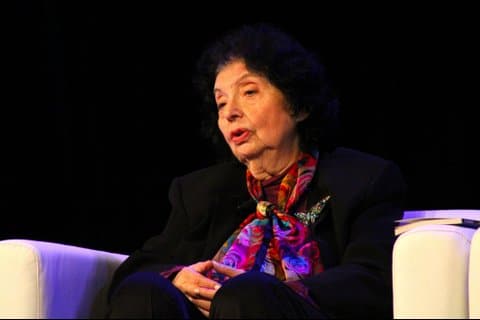
27 Dec Holocaust Survivor’s Life Is an Open Book Come Alive

Holocaust survivor Inge Auerbacher speaks at the Eradicate Hate Global Summit in Pittsburgh in September.
Editor’s note: The Eradicate Hate Global Summit began in 2021 in response to the mass shooting at the Tree of Life synagogue in Pittsburgh. This year, The CC Pulse was there for the first time in service of our Stop the Hate coverage. This is one of many stories we will publish that is about or inspired by the summit.
Story and photos by Joe Porrello
PITTSBURGH — Inge Auerbacher was in first grade when the Nazis began sending people like her to the concentration camps. Many children, including most of her friends, and several of her family members were killed in the Holocaust. But against the odds, she survived.
In the decades since, Auerbacher has dedicated herself to speaking publicly about the Holocaust. She doesn’t want people to forget or history to repeat itself.
To help make sure children know what happened, she has long been telling her story in the classroom. Now, she’s going digital.
Auerbacher said she wanted to find a different way to reach kids.
“They want to see more,” she said in September at the Eradicate Hate Global Summit.
Through a collaboration with technology companies Meta and StoryFile, Auerbacher is telling her story in a new way: an immersive, virtual experience called “Tell Me, Inge” that debuted this summer.
“It is like opening a book, and that book becomes alive,” said Auerbacher. “That’s what I like about it — you can interact.”
The experience uses virtual reality and artificial intelligence to make users feel like they are having a conversation with Auerbacher. Questions they ask are answered with responses she prerecorded, which are accompanied by illustrations. “Tell Me, Inge,” which is available in multiple languages, is designed to be experienced via VR headset but can be accessed on mobile devices and computers.
Auerbacher sat down with Meta Director of Public Policy David Tessler and StoryFile CEO Stephen Smith at the Eradicate Hate Global Summit in Pittsburgh on Sept. 27.
In their conversation, Smith good-naturedly called her “the oldest Gen Z’er I know.”
>>>Q&A: Sikh Richmond Man Reflects Seven Years After Brutal Hate Crime Attack
Born in the beginning of the Third Reich era, Auerbacher has known hate since entering the world — delivered in a German village by a Nazi doctor who would later be imprisoned. He “was always good to the Jewish people until, until” — she repeated for emphasis — “the bad things happened.”
Aurbacher was 3 on Kristallnacht, or “The Night of the Broken Glass,” when almost all the synagogues in Germany and Austria were burnt to the ground.
“We had to hide. They were banging at the door and trying to get in,” she said, referring to her family’s home on Kristallnacht.
Shortly after, Auerbacher’s father — a decorated and disabled WWI veteran — and grandfather were forced into the first concentration camp, Dachau.
“I never even finished my first grade; all the transfers began at that time, and almost the whole school was sent to the East to be killed,” she said. “Almost all of my friends went to the gas chambers or were shot.”
Auerchacher said her grandmother was shot by Nazis in a Latvian forest and was one of 14 siblings all murdered.
“We were in the same transport, but somehow we got out,” she said. “Otherwise, I would be in a mass grave.”
- Inge Auerbacher still has the yellow star she was forced to wear that signified her being a religious outsider. “You can still see the threads on it, when I ripped it off, they’re still there,” she said.
Nazi leadership forced Jewish people to purchase and sew a yellow Star of David on their clothes; other persecuted groups were made to wear different symbols. Auerbacher tore her “yellow star” off when the Russian army liberated the Jews on May 8, 1945.
“The sign of hate for us,” said Auerbacher, referencing the yellow badge. “And that’s why I wrote my first book, ‘I Am A Star’: I turned that meaning around.”
Before Auerbacher leaves a classroom, she has students chant, “I’m a star.”
- Inge Auerbacher has authored multiple books, including “I Am A Star” and “Beyond the Yellow Star to America.”
Auerbacher emphasized that the Holocaust was less than a century ago and expected by few German residents who thought of their homeland as a safe country.
“How could it happen? But it did… I’m afraid for the future too with things that are going on in the world…It’s a nightmare,” she said. “Could it happen again? I think, yes, in a different way.”
Jewish Federation of Greater Pittsburgh CEO Jeff Finklestein, who introduced the talk, spoke about Nazis murdering most of his family in 1941. He said “Tell Me, Inge” would “make sure the memory of those who were lost can continue on and be a lesson to all of us about what hatred and xenophobia can lead to.”
Smith noted the power of internet narratives — especially individual stories — in trying to combat hate but said they need to be controlled to be most beneficial instead of causing harm.
“Tell Me, Inge” is an example — “for young people, in particular, who are just getting into that cesspool of data that could actually be quite harmful, and giving them the chance to learn from her, with her, and go really deep,” said Smith.
- “Through (’Tell Me, Inge’), we don’t just witness history, we experience it,” said Meta’s Neil Potts at the Eradicate Hate Global Summit.
Meta Vice President of Trust and Safety Policy Neil Potts acknowledged that issues of hate are larger than any one organization or community.
“Whole society problems demand whole society solutions,” he said.
By encapsulating the essence of Auerbacher’s journey and making it tangible, Potts said the virtual conversation could breed sensitivity and shows how immersive technologies could help build a more empathetic future.
“It’s not just about understanding the Holocaust,” he said. “It’s about feeling the weight and significance and understanding why it’s crucial that we never, ever, ever forget.”
Unlike Auerbacher, most Jewish children did not survive the Holocaust. As many as 1.5 million of the 1.6 million living in what was Nazi territory were slaughtered, and about 80 years later, few are left to tell the tale firsthand.
“As the brave souls who lived through these times leave us, there’s a rising danger that these events may fade into mere footnotes in history,” said Potts, “and projects like ‘Tell Me, Inge’ make sure these stories stay alive.”
Making it her life’s mission to educate people on the horrors of the Holocaust, Auerbacher never thought she would be part of something like this VR experience.
“I always said, I want to be 100 years old, maybe 1,000; this gives me the opportunity,” she said. “I’m so proud. It’s a dream come true.”
Smith spoke to the impact of Meta and StoryFile’s collaborative project and its implications.
“What I think is so fascinating about this information age is that if we can channel that world, it’s such a powerful tool in our armory against hate,” he said. “And it doesn’t just apply to the Holocaust, this could be all our stories.”
This resource is supported in whole or in part by funding provided by the State of California, administered by the California State Library in partnership with the California Department of Social Services and the California Commission on Asian and Pacific Islander American Affairs as part of the Stop the Hate program. To report a hate incident or hate crime and get support, go to CA vs Hate.



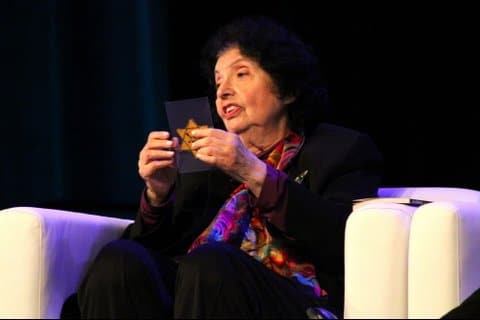
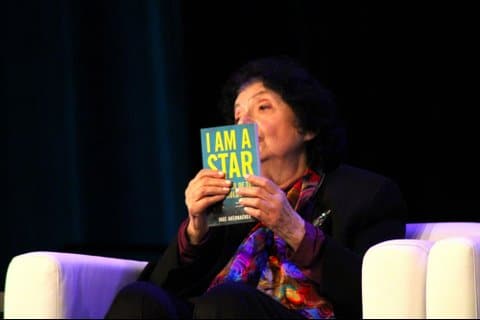
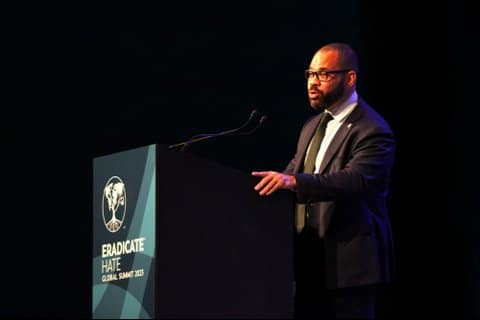
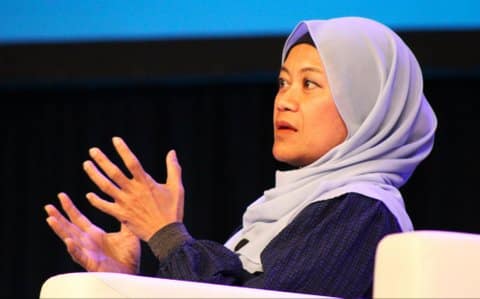
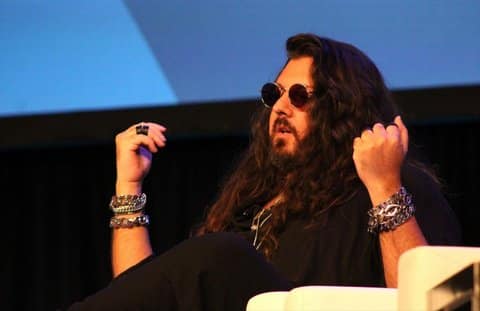
No Comments